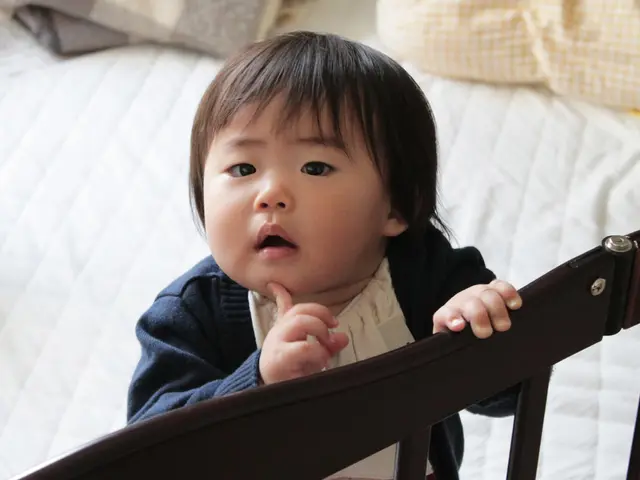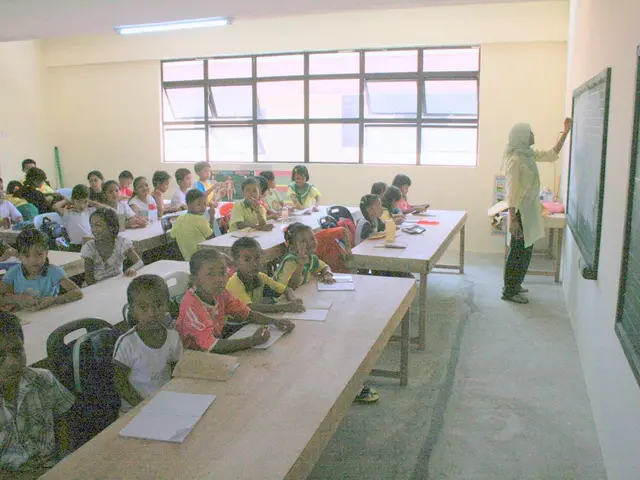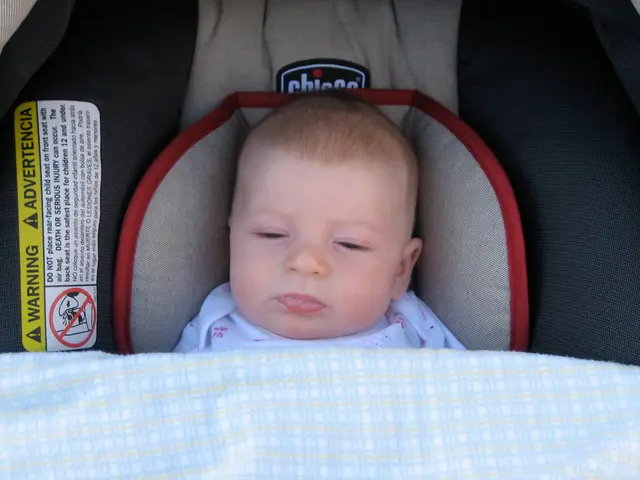Nurturing Both Parent and Child: Prison's New Focus – Co-Habitation for Incarcerated Mothers
- *
Nearby Confinement for Mothers - Incarceration Blueprints Contemplate Housing for Mothers - Co-location over segregation – Penitentiary proposes mother-child detention facilities
Forward-thinking plans are underway at the Zweibrücken Prison (Justizvollzugsanstalt Zweibrücken), envisioning a future where mothers can reside with their young children during their incarceration. Speaking to the German Press Agency, prison director Jürgen Buchholz underscored the strategy's focus on prioritizing the child's welfare.
Expected to commence construction in 2027, a new building will grace the prison grounds, housing five prison cells specifically designed for mothers with up to two children under their care. The facility's current roster does not include this type of accommodation.
The plan caters to children up to their first birthday. As Buchholz elucidated, at around two or three years old, children begin demonstrating a keen desire for socialization and outdoor play, necessities that closed detention might not fulfill.
The co-habitation proposal revolves around the child's welfare, with the youth welfare office endorsing the arrangement. Buchholz reiterated, "The jail term's duration must be manageable to ensure a timely departure for the child."
To date, the prison has existing offers to assist mothers and their offspring, but none allowing for joint occupancy. A subsequent offer, planned post the child's first birthday, is under development, even if it remains too premature for public discussion.
This venture aims to cater to inmates not only from Rhineland-Palatinate but also Saarland, as both regions share a joint prison system. Furthermore, a social therapy section will be part of the new structure's comprehensive plans.
- Child's welfare
- Prison
- Mothers
- Zweibrücken
- Buchholz
- Co-Habitation
- Separation
- German Press Agency
- Mother
- Children
- Saarland
In-Depth Perspective
The notion of permitting mothers to share their prison confines with their young children—as seen in some facilities such as the Zweibrücken Prison—raises both significant advantages and potential hurdles, chiefly concerning the child's welfare.
The Bright Side
- Preserving the Parent-Child Bond: Keeping children with their incarcerated mothers helps preserve a vital bond that fosters children's emotional and psychological growth, safeguarding them against trauma associated with abrupt separation and the risk of attachment disorders.
- Minimizing Trauma for Children: Children forsaking temporary living arrangements with their mothers dodge the frequent separations and instability often encountered in foster care or kinship placement, thus minimizing the risk of long-term psychological harm.
- Incentivizing Maternal Rehabilitation: By giving mothers a chance to closely care for their children, they might be more determined to participate in rehabilitation programs and observe good conduct.
- Promoting Holistic Child Development: Childhood is a sensitive growth phase, marked by critical brain development. Unwavering, wholesome care from a primary caregiver promotes superior cognitive, emotional, and social development.
The Darker Side
- Unsuitable Prison Environment: Prisons, being ill-designed for child development, may expose children to stressful conditions, lack essential space and resources, and impose restrictive institutional practices that are unfavorable for child development.
- Limited Peer Interaction: Prison-dwelling children may have limited opportunities for engagement with their peers outside the prison, which is instrumental in nurturing their social development.
- Stigma Issues: Both mother and child may encounter societal stigma linked to incarceration, potentially impacting their well-being and social integration in the future.
- Legal and Moral Dilemmas: Reconciling the rights and needs of the child with the demands of justice and security can present complex questions, including whether it truly serves the child's best interests to reside within a correctional facility.
Child's Welfare – The Cornerstone
The child's welfare forms the pillar of decisions regarding co-habitation in prison. The unwavering principle to prioritize the child's best interests is emphasized by international standards, such as those set by the United Nations. While keeping mothers and children together mitigates the hardships of separation, it is crucial to ensure that the prison environment is secure, healthy, and nurturing for the child. This might necessitate specialized staff, child-friendly facilities, and access to external support resources, including healthcare, education, and counseling services.
Furthermore, the child's developmental demands must be met to a standard that matches or exceeds that of children living outside the prison system. Only then can the child's overall well-being be guaranteed.
Final Thoughts
The option of co-habitating mothers and their young children in prison allows for the preservation of the mother–child bond and cushions children from certain traumas, but requires careful assessment of child development needs in the unyielding prison environment. Prioritizing the child's welfare always holds the key to successful programs. While the Zweibrücken Prison plan is not discussed in the provided materials, these factors, in general, are acknowledged in international prison and child welfare policies.
- The co-habitation proposal at the Zweibrücken Prison prioritizes the child's welfare, as stressed by prison director Jürgen Buchholz, following international standards set by the United Nations.
- Implementing vocational training programs within the prison could serve multiple purposes, aiding in the mother's rehabilitation and providing a sense of purpose and skill-building for both the mother and the child, contributing to their overall health-and-wellness and family-health.
- To ensure optimal mental-health for both the mother and the child, it is essential to provide them with access to support resources, including healthcare, education, and counseling services, within the prison environment, ensuring a nurturing and constructive family dynamic.








